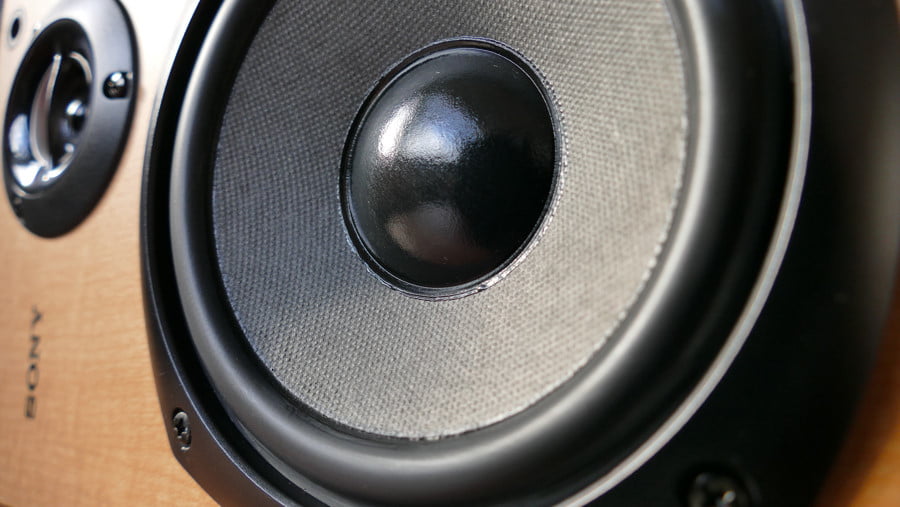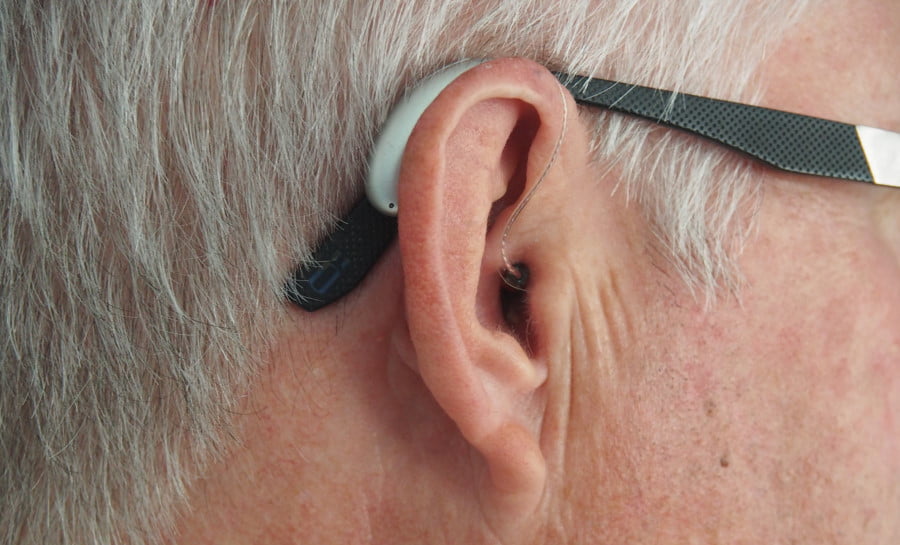As we age, our bodies undergo various changes, and hearing loss is no exception. For baby boomers, this is a growing concern that can affect their overall quality of life. In fact, according to the National Institute on Deafness and Other Communication Disorders, one in three people between the ages of 65 and 74 experience hearing loss, and two out of three people over 75 have some level of hearing loss. Therefore, it is essential to take preventative measures and manage hearing loss to fully enjoy our golden years. In this comprehensive guide, we will explore all facets of hearing loss prevention and management for baby boomers, including understanding hearing loss, common causes, signs and symptoms, treatment options, and living with hearing loss. By the end of this guide, you will be equipped with practical knowledge to prioritize your hearing health and lead a fulfilling life.
Understanding Hearing Loss
Hearing loss can manifest in various ways and can be caused by a multitude of factors. In this section, we will discuss some common causes of hearing loss, which can help you better understand and prevent it. There are two types of hearing loss: conductive and sensorineural. Conductive hearing loss occurs when sounds are unable to travel through the outer or middle ear, while sensorineural hearing loss happens when there is damage to the inner ear or auditory nerve. One of the most common causes of conductive hearing loss is a buildup of earwax, while sensorineural hearing loss is most often caused by aging, exposure to loud noises, and certain medications. Other less common causes include ear infections, head injuries, and medical conditions such as diabetes or high blood pressure.
It’s important to note that these causes are not mutually exclusive, and some individuals may experience hearing loss due to a combination of these factors. By understanding the causes of hearing loss, you can take steps to protect your hearing health and prevent further damage. In the next section, we will explore the signs and symptoms of hearing loss, so you can identify it early on and seek treatment.
Common Causes of Hearing Loss
Hearing loss can manifest in various ways and can be caused by a multitude of factors. In this section, we will discuss some common causes of hearing loss, which can help you better understand and prevent it. There are two types of hearing loss: conductive and sensorineural. Conductive hearing loss occurs when sounds are unable to travel through the outer or middle ear, while sensorineural hearing loss happens when there is damage to the inner ear or auditory nerve.
One of the most common causes of conductive hearing loss is a buildup of earwax. This can occur when earwax accumulates over time and becomes impacted, blocking the ear canal and preventing sound waves from reaching the eardrum. Sensorineural hearing loss is most often caused by aging, exposure to loud noises, and certain medications. Over time, exposure to loud sounds can damage the delicate hair cells in the inner ear, leading to permanent hearing loss. Medications such as chemotherapy drugs and some antibiotics can also cause hearing loss as a side effect.
Other less common causes of hearing loss include ear infections, head injuries, and medical conditions such as diabetes or high blood pressure. Ear infections can damage the ear canal and cause fluid buildup, leading to conductive hearing loss. Head injuries can damage the inner ear or auditory nerve, causing sensorineural hearing loss. Medical conditions such as diabetes and high blood pressure can affect blood flow to the ears and increase the risk of hearing loss.
It’s important to note that these causes are not mutually exclusive, and some individuals may experience hearing loss due to a combination of these factors. By understanding the causes of hearing loss, you can take steps to protect your hearing health and prevent further damage. In the next section, we will explore the signs and symptoms of hearing loss, so you can identify it early on and seek treatment. Understanding both the causes and symptoms of hearing loss is vital to preventing hearing loss and keeping your hearing healthy for years to come.
Hearing Loss Prevention Measures
To prevent hearing loss, there are several preventative measures you can take. One of the most important is to avoid exposure to loud noises, as noise-induced hearing loss is one of the most common forms of hearing loss. This can be accomplished by wearing earplugs or earmuffs when surrounded by loud noises, such as at concerts or when using power tools.

Another preventative measure is to maintain good ear hygiene. Keeping your ears clean and dry can help prevent infections that can lead to conductive hearing loss. You should also avoid sticking foreign objects, such as cotton swabs, into your ears, as this can cause damage to the ear canal and eardrum.
Other hearing loss prevention measures include managing medical conditions that can affect hearing, such as diabetes and high blood pressure, as well as taking steps to prevent head injuries, such as wearing a helmet while participating in activities like biking or skiing.
By taking these preventative measures, you can reduce your risk of hearing loss and protect your hearing health. In the next section, we will explore the signs and symptoms of hearing loss, so you can identify it early on and seek treatment. Understanding both the causes and symptoms of hearing loss is vital to preventing hearing loss and keeping your hearing healthy for years to come.
Signs and Symptoms of Hearing Loss
Taking preventative measures can significantly reduce your risk of developing hearing loss, but sometimes it can still happen. Knowing and recognizing the signs and symptoms of hearing loss is crucial to seek treatment early on. Some of the most common signs of hearing loss include struggling to hear conversations in noisy environments, frequently asking others to repeat themselves, difficulty hearing high-pitched sounds, and constantly turning up the volume on electronic devices. Other noticeable symptoms might include tinnitus (ringing or buzzing in the ears), dizziness, and ear pain or discharge.
If you experience any of the above symptoms, it’s essential to schedule an appointment with an audiologist or hearing healthcare professional immediately. Early detection and treatment can prevent further hearing loss and improve your overall quality of life. In the next section, we will explore some of the most effective treatment options available for hearing loss, so you can better understand the steps you can take to manage and improve your hearing health.
Treatment Options for Hearing Loss
If you have been diagnosed with hearing loss, there are several treatment options available to help manage and improve your hearing health. The most common treatment option is hearing aids, which can significantly improve your ability to hear and communicate with others. Modern hearing aids come in a variety of styles and sizes, with many offering advanced features such as Bluetooth connectivity and noise-cancellation technology.
Another treatment option is cochlear implants, which are surgically implanted devices that bypass damaged parts of the inner ear and send signals directly to the auditory nerve. Cochlear implants are typically recommended for individuals with severe or profound hearing loss who do not benefit from traditional hearing aids.
In addition to these options, there are also assistive listening devices (ALDs) that can be used in conjunction with hearing aids or cochlear implants. ALDs include devices such as FM systems, which transmit sound directly to hearing aids, and captioned telephones, which display captions of spoken words on a screen.
It’s essential to work closely with your audiologist or hearing healthcare professional to determine the best treatment options for your specific needs. With the right treatment plan, you can manage your hearing loss and continue to live a fulfilling and active life. In the next section, we will explore some practical tips for living with hearing loss that can help you remain engaged and connected to the world around you.
Living with Hearing Loss
Adjusting to life with hearing loss can be challenging, but it’s important to remember that you don’t have to go through it alone. With the right support and tools, you can continue to enjoy your favorite activities and stay connected to the people and world around you.
One of the most important things you can do is to communicate openly with your loved ones and friends about your hearing loss. Letting them know what you need can make a huge difference. For example, ask them to speak louder or slower, or to face you directly when they’re talking. And don’t be afraid to ask for clarification if you’re not sure what someone said.
It’s also important to take care of yourself physically and emotionally. Hearing loss can be isolating, so make sure you’re staying active and engaged with the world around you. Consider taking up a hobby or joining a club where you can meet new people and pursue your interests.
There are also many assistive devices that can make life with hearing loss easier. For example, captioned telephones can help you follow conversations more easily by displaying spoken words on a screen. And there are apps that can help you track your hearing health, adjust your hearing aids, and even transcribe speech in real-time.
Finally, it’s important to stay up-to-date on your hearing health. Regular check-ups with your hearing healthcare professional can help you stay on top of any changes in your hearing and make adjustments to your treatment plan as needed.
By taking these steps, you can continue to live a fulfilling and active life, even with hearing loss. Understanding the causes, preventative measures, symptoms, and treatment options for hearing loss is crucial for baby boomers to fully enjoy their golden years. By prioritizing hearing health and taking action when necessary, we can prevent and manage hearing loss effectively. Don’t let hearing loss hold you back from experiencing life to the fullest. As Helen Keller once said, “Blindness cuts us off from things, but deafness cuts us off from people.” Take care of your hearing and stay connected with the world around you.











